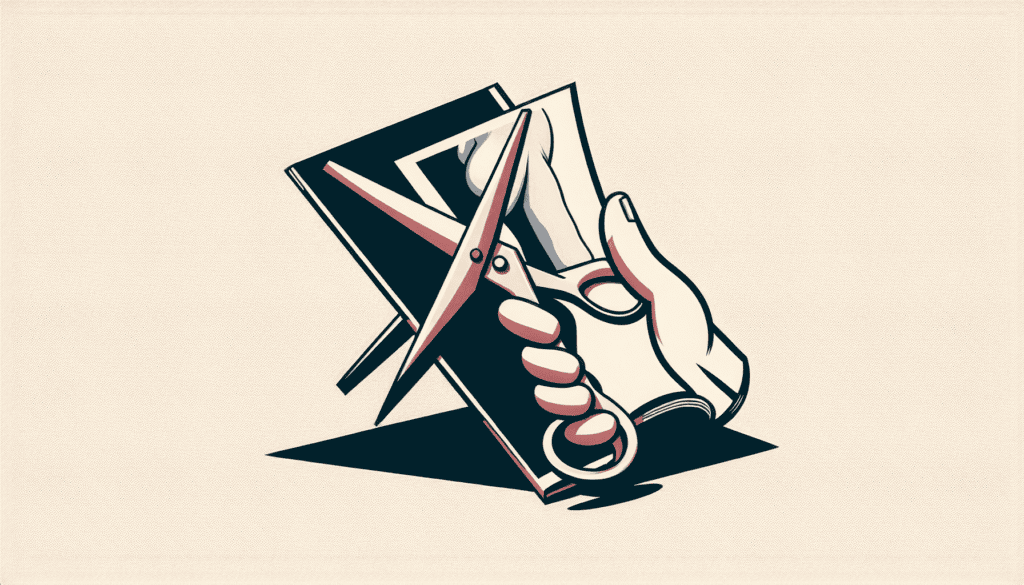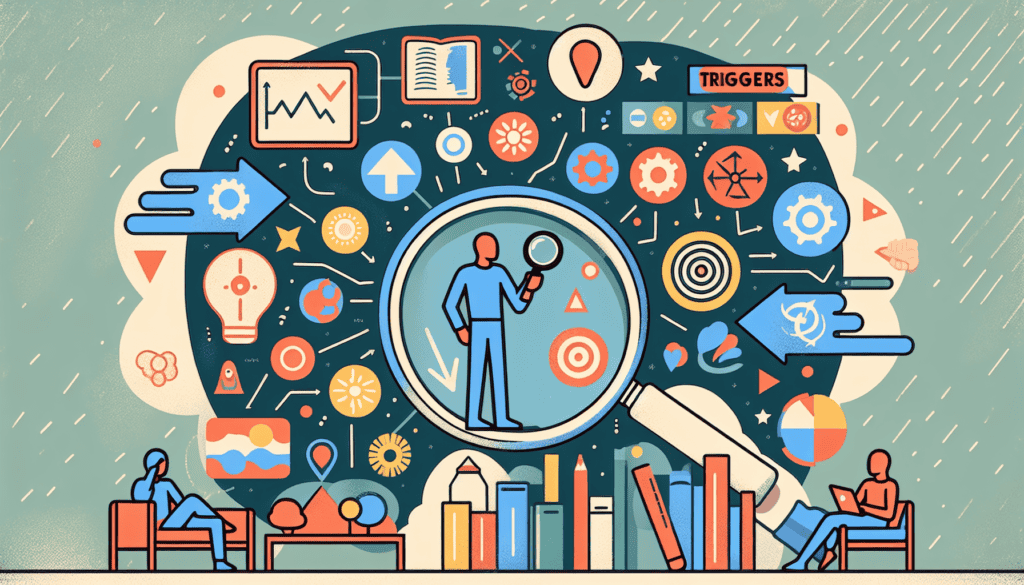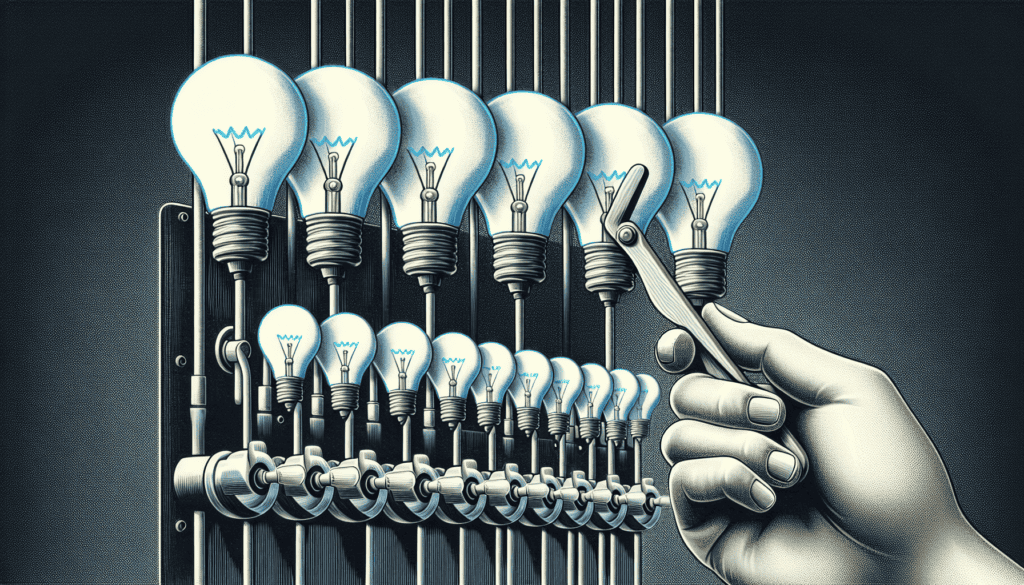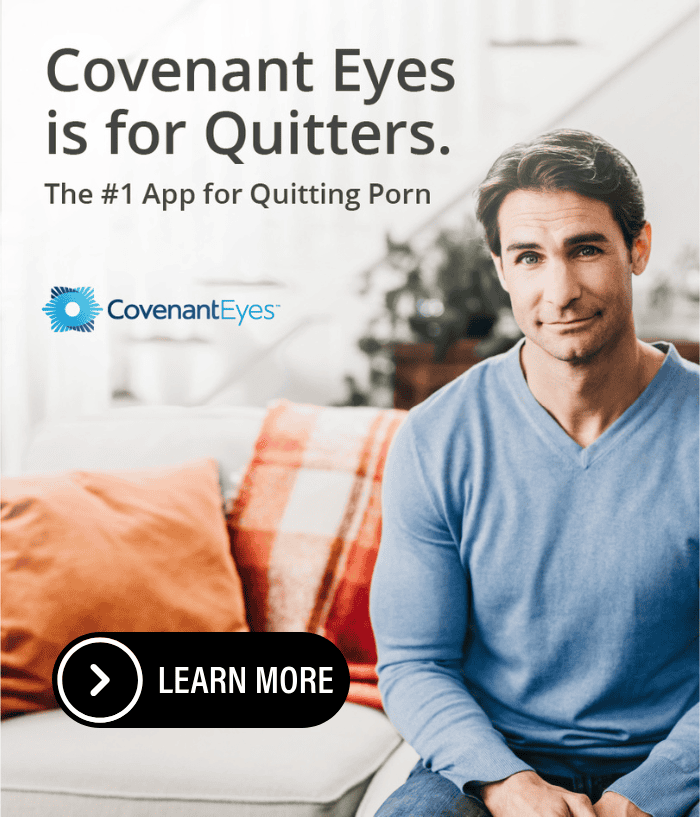Understanding Setbacks in Porn Addiction Recovery
Getting over a porn addiction ain’t a walk in the park. It’s a bumpy ride, full of ups and downs. Slip-ups and full-blown relapses aren’t rare, and knowing the difference helps heaps with bouncing back. Let’s break down why spotting these slip-ups matters and how they’re not the same as relapses.
The Lowdown on Spotting Setbacks
Spotting a setback early is like finding a loose thread before it unravels your whole sweater. It gives clues about what sets you off so you can dodge ’em next time. Catching them early avoids turning a small hiccup into a total crash. Plus, it helps keep your head in the game, nixing shame and guilt right at the start. Want more on handling those nagging feels? Hit up our article on dealing with the guilt and shame of a relapse.
Knowing the Difference Between Slip-ups and Relapses
You’ve got slip-ups and relapses. They sound similar, but they ain’t the same. Knowing the difference? It’s key to managing your road to recovery.
Slip-up: Picture this—a small slip on a banana peel. A slip-up’s a tiny oopsie where you go off course for a sec but get back on track quick. It’s often triggered by something that catches you off guard and doesn’t mean you’re back to square one.
Relapse: Relapses are bigger mess-ups. Imagine falling down a slippery slope you were trying to avoid. You find yourself back in deep waters, doing what you thought you’d left behind. Usually, it’s a sign things need tweaking in how you’re handling recovery. Stress piling up? Unknown triggers? Check out our article for the warning signs of an impending relapse.
| Setback Type | Description | Duration | Consequence | Example |
|---|---|---|---|---|
| Slip-up | Quick misstep, getting right back on track | Short-lived | Little impact when caught early | Clicking on a porn site once, then regretting it and stopping |
| Relapse | Reliving old habits | Long-term | Big-time impact, need a redo | Habitually watching porn over many days |
Knowing what’s what lets you see how you’re doing and decide what to do next. Check out how to learn from a relapse and not let it derail you to stick with your recovery plan.
Being able to spot the difference between slip-ups and relapses is huge for getting over a porn addiction. It helps you react the right way and keep pushing towards a porn-free life. Wanna stop future relapses before they start? Peek at our article on how do i prevent future relapses.
Slip-up in Porn Addiction Recovery
Definition of a Slip-up
Ever been there where you’re doing super well, then bam, a blip happens? In porn addiction recovery, that’s what we call a slip-up—basically a hiccup in judgment where someone dives back into porn but then snaps out of it real quick.
Unlike a full-blown relapse dragging you down a dark alley of old habits, a slip-up tends to be a one-time thing. Spotting these early on is key since it lets folks tackle the issue without spiraling into shame or guilt.
Common Triggers for Slip-ups
During recovery, a bunch of stuff can tempt folks into those pesky slip-ups. Knowing what these usual suspects are can help anyone sidestep them before they strike. Here’s what’s often at play:
Emotional Triggers
- Stress: When life turns up the pressure cooker, the old comfort zone of unhealthy habits might start calling your name.
- Loneliness: Feeling like you’re on an island makes it tempting to find solace in familiar, if not so great, online spaces.
- Boredom: When you’re twiddling your thumbs, turning to porn can seem like an easy distraction.
Environmental Triggers
- Easy Access: When the digital doors flinging open to adult content aren’t locked, they can be hard to resist.
- Location: Those moments where you’re flying solo at home can dial up the desire to revisit porn.
- Technology: Smart tech can sometimes be a two-faced buddy, offering both help and temptation.
Social Triggers
- Peer Pressure: Sometimes friends might unintentionally lead you astray if they’re into porn.
- Chit-chat: Just hearing talk of porn can flip a switch and spike old cravings.
Psychological Triggers
- Old Patterns: Memories or feelings from past usage can hit like a ton of bricks, spurring you back.
- Self-view: When self-esteem tank levels are low, it’s easier to fall back into those old ways.
Tackling slip-ups better requires a heads up on these triggers and crafting some strategies to dodge them. Think setting up boundaries, leaning on your support network, and swapping in healthier habits. To dig deeper into steering clear of relapses, jump over to our article on how do you mentally prepare for potential relapses.
Grasping the essence of a slip-up and knowing what often kicks it off can mean riding that recovery path with eyes wide open. For anyone struggling with the shades of guilt or shame tied to slip-ups, checking out resources on how to deal with the guilt and shame of a relapse could really help lighten the load.
Relapse in Porn Addiction Recovery
Definition of a Relapse
When somebody fighting a porn habit slips back into their old ways, that’s what we call a relapse. It’s a bit more serious than just a minor stumble or a one-time backslide.
Instead, it’s like a full-on plunge back into the habit, and it might point to some bigger issues lurking beneath the surface.
It’s crucial to understand the distinction between a relapse and a slip-up for anyone serious about recovery. Curious to know more? Check out our deep dive into slip-up vs. relapse: what’s the difference?
Warning Signs of an Impending Relapse
Spotting the early signs of a relapse can help nip it in the bud. Here are a few red flags that might signal trouble ahead:
| Warning Sign | Description |
|---|---|
| Increased Isolation | Pulling away from loved ones and the usual support system. |
| Emotional Distress | Feeling extra anxious, down, or ticked off. |
| Romanticizing Porn | Thinking back fondly on old porn habits, convincing yourself it wasn’t all that bad. |
| Neglecting Self-Care | Letting go of healthy habits—skipping meals, workouts, and sleep. |
| Avoidance of Triggers | Dodging scenarios that remind you of the addiction instead of confronting them. |
| Decline in Motivation | Losing passion for hobbies, work, or goals that once got you psyched. |
Want more pointers on handling these signals? Our article on how to mentally prepare for potential relapses has you covered.
Recognizing these signs means you can jump into action before it spirals out of control. Working on coping skills is key to keeping your recovery on track. If you catch these early warnings, don’t hesitate to lean on your support circle or get in touch with a professional for some guidance.
Looking for more insights on tackling a relapse head-on? Check out our reads on how to learn from a relapse and not let it derail you and how to deal with the guilt and shame of a relapse.
Coping Strategies
Dealing with setbacks on the road to recovery can be challenging, but it’s key to sticking to the long haul of sobriety. Smart coping strategies can help folks stay on track when slip-ups happen, keeping things from spiraling into full-on relapse.
How to Handle Slip-ups Effectively
Handling a slip-up right calls for spotting it for what it is and acting fast to cut its impact.
Face the Slip-up
- First things first—you gotta own up to the slip. Pretending it didn’t happen just sets you up to do it again, and down the line, it could mean relapse.
Pinpoint the Culprit
- Figure out what set you off. Knowing your trigger is half the battle. Check out more tips on how to overcome relapse triggers.
Cut Off Triggers
- After you ID the culprit, act fast to steer clear or get rid of anything that sets you off.
Lean on Your Support Group
- Don’t tough it out alone. Chat with your support group, therapist, or a friend. A helping hand is crucial when you’re cleaning up a mess.
Double Down on Sobriety
- Renew your vow to stay clean. Daily affirmations, meditation, or positive vibes through a routine can help you lock in that commitment.
Preventing Escalation from a Slip-up to a Relapse
Keeping a slip from growing into a relapse takes some smart planning and keeping your eyes on recovery.
Spot Early Clues
- Stay sharp to catch the first signs that trouble’s brewing again. Jumping on these early keeps problems small. Get more on the nitty-gritty at what are the most common relapse triggers?.
Draft a Battle Plan
- Outline a game plan that tackles stress, sticks with good habits, and skips risky business. See how do I prevent future relapses?
Prioritize Self-Care
- Dive into activities that boost body and mind. Whether it’s hitting the gym, eating right, or catching enough z’s, make sure you’re taking care of numero uno.
Learn from the Bump
- Dig into what tripped you up and use it like a lesson to brace yourself against more curveballs. Need more intel? Peek at how to learn from a relapse and not let it derail you.
Keep Your Support Networks Close
- Hang tight with your support peeps or make therapy a regular pit stop. Staying connected amps up motivation and keeps the lonely blues at bay.
| Strategy | Action |
|---|---|
| Face It | Owning up to the slip |
| Spot the Cause | Find and suss out what started it |
| Cut Off | Stay clear of your triggers |
| Seek Help | Reach out when it gets rough |
| Double Down | Keep up those positive habits |
These pointers create a strong safety net to catch slip-ups before they tumble into more serious setbacks. For more support on rolling with the punches, head over to is it normal to struggle with relapse? and how do you mentally prepare for potential relapses?











